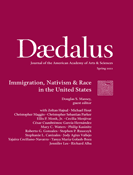By Andrea Gómez Cervantes, and Cecilia Menjívar
Using interviews and ethnography started in 2016 in rural and urban Kansas, we examine the consequences of an amplified immigration enforcement combined with a local limited health care infrastructure that reproduce legal violence manifesting on Latina immigrants’ health, access to care, and community participation. We highlight the conditions rooted in place that generate short- and long-term negative impacts for Latina immigrants’ health. Fear and anxiety about the deportation of themselves and their family members make them ill and also generate apprehension about contacting medical institutions, driving, and spending time in public spaces. These circumstances coalesce in women’s lives to block access to medical care and undermine women’s roles in their communities. Following gendered expectations, women turn to their informal networks to seek health care for their families. In the context that the
Journal of Health and Social Behavior Volume 61 Issue 3 Pages 307-323, 2020




